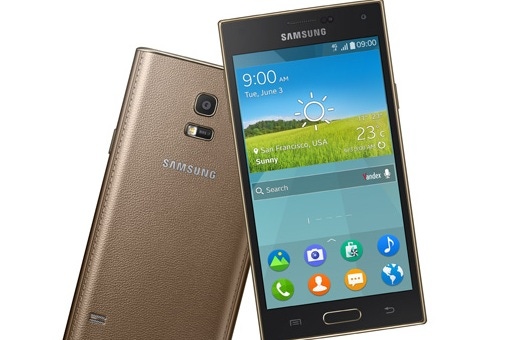Samsung makes tentative Tizen launch
Global smartphone sales leader Samsung has finally unveiled a smartphone running on Tizen – the new, Linux-based, open-source mobile OS that Samsung has been developing in partnership with Intel ever since Nokia threw the towel in on MeeGo back in 2011.
June 2, 2014

Global smartphone sales leader Samsung has finally unveiled a smartphone running on Tizen – the new, Linux-based, open-source mobile OS that Samsung has been developing in partnership with Intel ever since Nokia threw the towel in on MeeGo back in 2011.
The Samsung Z is a 4.8-inch device with a quad-core processor and support for most of the latest tech goodness such as LTE cat 4, NFC and a fingerprint-reader in the home key. It runs on Tizen 2.2.1, for what it’s worth, and will be launched solely in Russia in Q3 2014, indicating Samsung is opting for a tentative mini-launch of its first Tizen smartphone, to limit its exposure should things not go well.
Around 80 per cent of global smartphone sales are currently accounted for by Google’s Android OS, and Samsung is by far the largest player in that ecosystem. But the Korean giant has long been concerned about how difficult it is to differentiate its own Android devices from those of its competitors running the same platform.
Furthermore, since margins on smartphone are shrinking as the industry matures, device vendors are increasingly looking to accessories, software and services to boost their squeezed margins. Google currently offers a suite of Android apps for free, such as search, maps and email, in order to serve ads to users. This leaves little opportunity for device vendors to generate additional revenues via their own software and service offerings.
Hence the appeal to Samsung of having its own platform – a strong differentiator that also affords control over the subsequent user relationship. Of course, as Nokia and BlackBerry have found, a novel platform becomes a liability if users don’t warm to it, and new platforms are caught in a ‘Catch-22’ situation in which consumers don’t want to buy a device without strong developer support (i.e. a well-stocked app store), and developers don’t want to invest time on a platform with a small installed base.
Global smartphone installed base is currently dominated by Android and Apple’s iOS, with Microsoft’s Windows Phone struggling to gain traction, BlackBerry in steep decline, and Symbian a distant memory. In principal this presents opportunities for nimble new platforms, such as Firefox OS or Tizen, to steal some share from the incumbents, but in practice it is very difficult to convince consumers to move away from a platform they know and trust.
The Broadband World Forum is taking place on the 21st – 23rd October 2014 at the RAI Exhibition and Convention Centre, Amsterdam. Click here to download a brochure for the event.
“The Samsung Z integrates the power and adaptability of the Tizen platform, enabling users to browse the web faster and utilize applications more effectively,” said DJ Lee, head of global sales & marketing for Samsung Mobile, without elaborating much on how this is achieved.
The Samsung Z has been launched over a year later than Samsung’s first Tizen smartphone had originally been expected, in a single, relatively small market. Samsung understands the scale of the challenge involved in trying to establish a new mobile platform and is clearly unwilling to do anything that will jeopardise its current dominance of the Android ecosystem. The launch of the Samsung Z represents a toe dipped in the Tizen water, and only if things go well is Samsung likely to extend this to a global launch.
About the Author(s)
You May Also Like











_1.jpg?width=300&auto=webp&quality=80&disable=upscale)


.png?width=800&auto=webp&quality=80&disable=upscale)